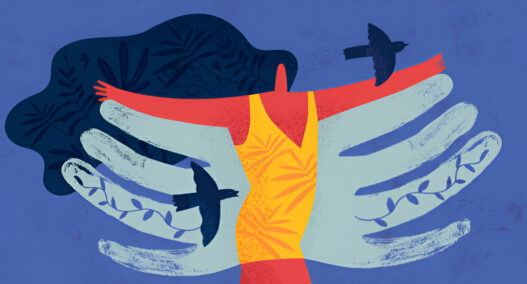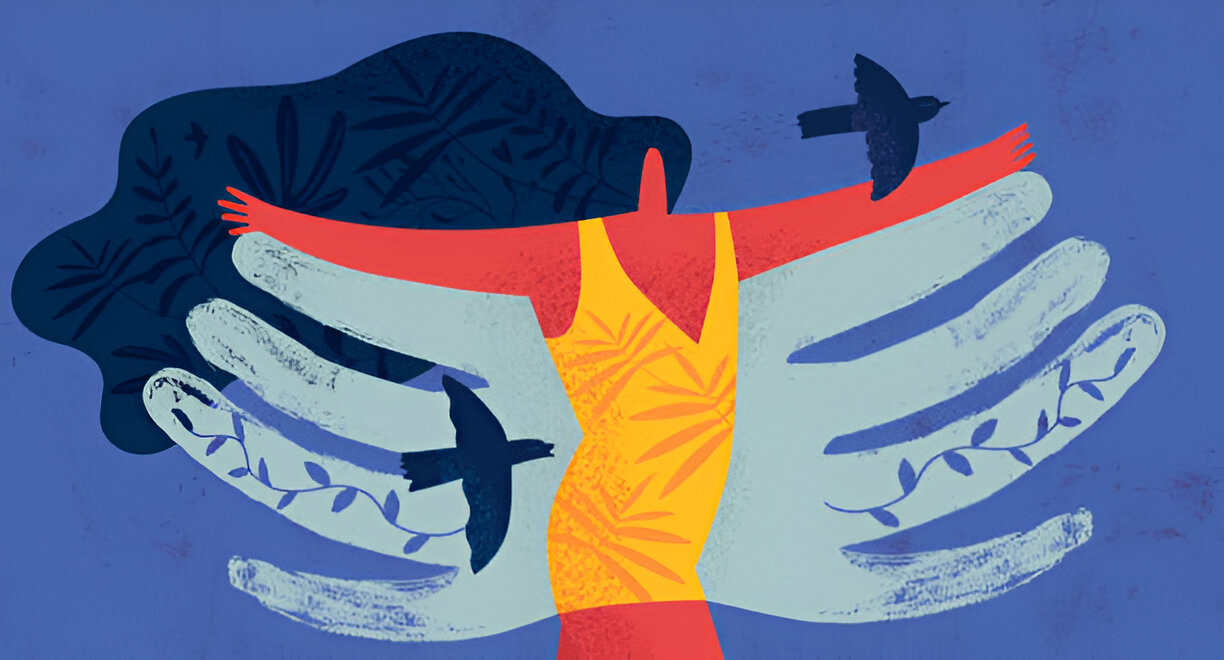The Immoral Traffic (Prevention) Act, 1956, is a crucial piece of Indian legislation aimed at preventing and combating immoral traffic, particularly in the context of prostitution and human trafficking. This blog post provides an overview of the Act, its key definitions, and its provisions for the protection and rehabilitation of victims.
Purpose and Scope of the Act
The Act was enacted to address the exploitation of individuals for commercial purposes, focusing on the prevention of trafficking and prostitution, and it was brought in, in pursuance of an international convention which was signed in 1950. The Act aims to provide a legal framework for the rescue, protection, and rehabilitation of those who are victims of this exploitative practice. It encompasses various offenses related to brothels, prostitution, and the exploitation of women and children.
Key Definitions Under the Act
-
Brothel: Includes any house, room, conveyance, place, or portion used for the purposes of sexual exploitation or abuse, for the gain of another person or for the mutual gain of two or more prostitutes.
-
Child: A person who has not completed the age of sixteen years.
-
Corrective Institution: A place, licensed under the act, which detains people in need of correction.
-
Magistrate: A magistrate specified in the schedule to exercise powers under the act.
-
Major: A person who has completed the age of eighteen years.
-
Minor: A person who has completed the age of sixteen years but not the age of eighteen.
-
Prescribed: Means prescribed by the rules made under this act.
-
Prostitution: Sexual exploitation or abuse of persons for commercial purpose.
-
Protective Home: An institution for the care and protection of persons kept under this Act.
-
Public Place: Any place intended for use by the public and includes any public conveyance.
-
Special Police Officer: A police officer appointed by the State government to be in charge of police duties in a specific area for purposes of this act.
-
Trafficking Police Officer: A police officer appointed by the Central government to investigate offences under this act.
Prohibited Activities and Penalties
The Act outlines several offenses related to immoral traffic, and it also states punishments for those offenses:
-
Keeping a Brothel (Section 3):
-
Keeping or managing a brothel is punishable with rigorous imprisonment of 1-3 years, along with fine (up to ₹2,000) for the first offence.
-
Repeat offenders face imprisonment of 2-5 years along with fine (up to ₹2,000).
-
Allowing premises to be used as a brothel can result in imprisonment of up to two years and fine (up to ₹2,000). Subsequent violations lead to 5-year imprisonment.
-
If there is a newspaper report or proof of search that the premises was used for prostitution, then the presumption is in favour of the premises being used as a brothel.
-
If an individual is convicted, then any lease of the property used as a brothel is deemed void.
-
-
Living on the Earnings of Prostitution (Section 4):
-
Knowingly living on the earnings of a prostitute is punishable with imprisonment for up to two years and/or fine up to ₹1,000.
-
-
If the earnings are from prostitution of a child or minor, then it is punishable with imprisonment not less than 7 years, and may extend upto 10 years.
* If it is proven that an individual is living with a prostitute, exercising control over a prostitute, or acting as a pimp for a prostitute, it is assumed that he is living on the earnings of a prostitute.
-
Procuring, Inducing, or Taking a Person for Prostitution (Section 5):
-
Procuring a person for the purpose of prostitution is punishable with imprisonment for 3-7 years and/or fine up to ₹2,000.
-
If the act of procuring was against the will of the person, then the imprisonment may extend from 7 to 14 years.
-
If the person procured is a child, then imprisonment may extend to life. If the person is a minor then imprisonment may extend to 14 years.
-
-
Detaining a Person in a Brothel (Section 6):
-
Detaining a person in a brothel with or without their consent can lead to imprisonment for not less than 7 years, and may be life or extend upto 10 years, with an additional fine. The Court can impose a lesser sentence if they deem appropriate and record the reasons in writing.
-
If a child is found in a brothel, it is presumed that he/she was detained for the purposes of prostitution. If the child has been sexually abused, then that also acts as a presumption for their exploitation for commercial purposes.
-
Withholding a person’s valuables, or threat of legal proceedings, also establishes that there was intent to keep them in the brothel.
-
-
Prostitution in or near Public Places (Section 7):
-
Prostitution in notified public areas or within 200 meters of religious, educational, or healthcare institutions is punishable with imprisonment of up to 3 months.
-
The State Government has powers to designate areas and prohibit prostitution.
-
Repeat offenders can be punished with up to six months imprisonment. If the premises is a hotel, the license can be suspended or cancelled.
-
If an offense is committed in relation to a child or minor, then imprisonment can extend upto life, or 10 years, with a fine.
-
If the keeper of public place or premises is aware of prostitution being carried out at the premises and does not take steps to prevent it, then he can be punished with fine or imprisonment or both.
-
-
Seducing or Soliciting for Prostitution (Section 8):
-
Seducing or soliciting in public for prostitution is punishable with imprisonment up to 6 months and/or a fine up to ₹500. Repeat offences carry longer imprisonment. A male can be imprisoned for a minimum period of 7 days and may extend to three months.
-
-
Seduction of a person in custody (Section 9):
-
If someone in a position of authority or in custody seduces or abets seduction of a person for the purpose of prostitution, then they shall be punished with imprisonment, which may not be less than 7 years and can extend upto life, or a term that may extend upto 10 years and also be liable to fine. A court can give a lesser sentence, for adequate and special reasons.
-
Key Aspects of the Act
-
Rescue of Person (Section 16): Magistrates are empowered to direct police officers to enter brothels to rescue individuals living or being made to engage in prostitution. Any rescued person needs to be produced before the magistrate immediately.
-
Protective Homes (Section 21): The Act establishes protective homes to rehabilitate and provide care to those rescued. The State government can establish such homes, and their maintenance and regulation is under the government. The Central Government also provides grants to states for this purpose.
-
Special Police Officers (Section 13): The Act provides for appointment of special police officers who are not below the rank of an inspector, to deal with offences under the Act. A district magistrate may also give these powers to a retired police officer. They are required to be assisted by a sufficient number of police officers and they may also be assisted by a non official advisory body to provide support in their functions.
-
Trafficking Police Officers (Section 13(4)): The central government has the power to appoint trafficking police officers who have the power to investigate offences under the Act in more than one state.
-
Search Without Warrant (Section 15): Special police officers or trafficking police officers have the authority to search premises without a warrant if they have reasonable grounds to believe an offense has been committed.
-
They are required to call 2 respected witnesses (atleast one of whom should be a woman) to the search
-
After the search, the person is produced before a magistrate.
-
Protection of Action in Good Faith: All actions taken under this law are protected, for any person acting in good faith under this Act.
-
Cognizance of Offences
-
Offences under the Act are cognizable. An arrest without warrant can be made only by a special police officer and following his procedure, or when the need to arrest without warrant is such that waiting for an order from the special police officer would allow a person to escape or to destroy evidence.
-
All offences under the Act are bailable, unless specified.
-
-
Special Courts (Section 22A): State and Central governments have the power to set up special courts for speedy trials of the offences.
Additional Provisions:
-
Power to make Rules: The state government is empowered to make rules and regulations to implement this Act.
-
Removal of Prostitutes from places (Section 20):
-
Magistrates are empowered to initiate actions for removal of prostitutes from places they are residing or frequenting, and also prohibit them from re-entering those areas.
-
If a person re-enters without permission then they may be punishable with fine.
-
Conclusion
The Immoral Traffic (Prevention) Act, 1956, serves as a vital legal instrument in India’s fight against human trafficking and exploitation. It provides a framework for enforcement, protection, and rehabilitation, and understanding its provisions is crucial for all citizens and legal professionals in order to build a society which has dignity and respect for everyone.




